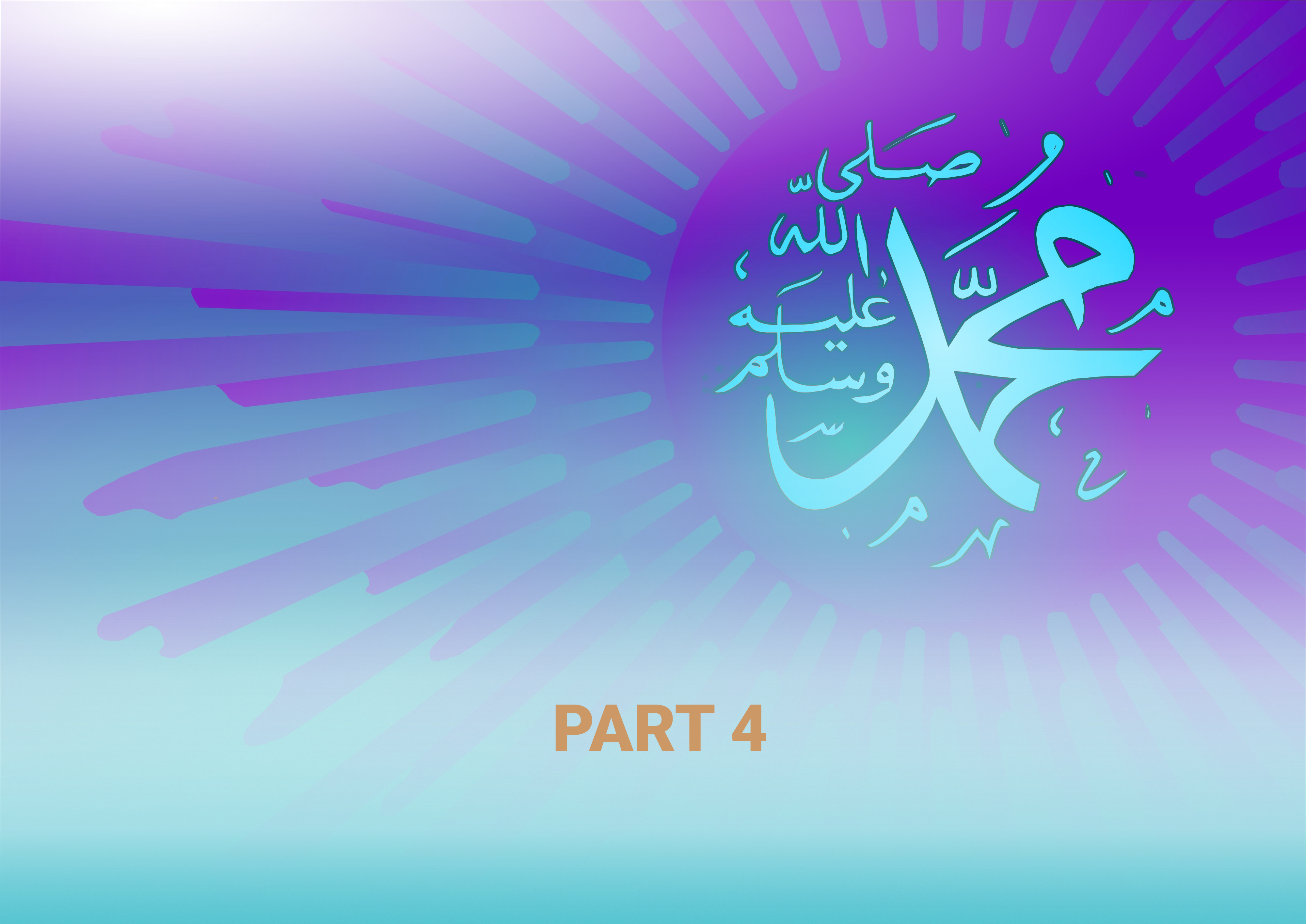Part 4 – The Prophet’s Peace-Making, Unification Ability and Leadership Efficacy
This Blog Series explores the Prophet Muhammad’s Islamic value driven leadership, and is based on my Master’s Degree in Islamic Studies research, at ISRA’s Centre for Islamic Studies & Civilisation, Charles Sturt University.
This fourth article in our blog series, explores the skills and actions of the Prophet Muhammad (pbuh) as a peace maker and tool for unification of the Arabian Peninsula as well as his leadership efficacy.
The Prophet Muhammad (pbuh) used every opportunity for facilitating an intrinsic motivation within individuals to cooperate with each other and be proactive in employing peace-seeking methods. (Dogan, 2015). For example, after being welcomed to immigrate to Medina, the Prophet promoted and established strong brotherhood ties and relationships between the immigrants and the Medina community (Dogan, 2014), teaching them how live and work together in harmony, which unified them.
In addition, he created and maintained close personal relationships with his community, and was aware of their strengths, weaknesses, personalities. (El’amin, 2008) Understanding his people and engaging with them, transformed their qualities and characters into a peaceful manner. (Dogan, 2015)
Another key aspect of his peace making leadership that created unification, was the constitutional base he created through the ‘Constitution of Medina’, a formal agreement between him and all of the significant tribes and families of Medina, including Muslims, Jews, and pagans, which ended the bitter intertribal fighting between clans uniting them under one community. These alliances formed with clans and tribes, included pacts, treaties, military victories and marriages to foster bonds and relationships, (Noor, 2015) that united the whole Arabian Peninsula for the first time in history.
He addressed their minds, intellect, heart and soul
The final key Islamic value driven leadership tenet of the Prophet (pbuh) that transformed Arab society was his leadership efficacy; he knew that actions were what would move his followers, not only his words. His greatest leadership efficacy was addressing the minds, intellect, heart and soul of his community. He became dear to their hearts and their teacher in every aspect of life (Gulen, 2005).
The Prophet himself defined a leader as someone who serves humanity and God.
Countless narrations about his whole life are filled with stories highlighting his altruistic character and service philosophy, which was the benchmark of his leadership qualities that facilitated the transformation of the 6th century Arab self-centred mindset to a selfless and genuine concern for others.
John Adair (2015), a modern leadership author, argues that this quality of the Prophet perfectly matches what we now know as the universal truth about leadership. Why it works is that servant leadership creates a long-term, transformational approach that creates massive positive change in societies. (Mir, 2010)
On this note, not surprisingly, his mission as stated by various writers was to be a role model of the beliefs and principles of the Quran. His wife Aisha, once described his character as the embodiment of the Quran, indicating he practiced the Quranic teachings perfectly. (Noor, 2015) Adair (2010) sums up the importance of this tenet, stating that in leadership, ‘example is everything’. A leader must always lead by example, in which case the Prophet did so. By practicing what he preached, his doctrines were easy to follow. (Hassan, 2016)
He taught through his actions
Hence, he conveyed what he wanted to teach through his actions, and then translated those actions into words. For example, how to be humble. (Gulen, 2005) As a result, whatever he preached was accepted easily and his words positively affected people’s hearts. (Gulen, 2005) In addition, by sharing in the labours, dangers and hardships of his people, it attracted devotion to him. (Adair 2010)
In addition to the above example, the Prophet exhibited unfailing consistency in his character, vision and approach, total ‘confidence and belief in his message, strong willpower and determination’, all of which are inherent qualities of a true leader. (Dogan, 2015) He was also praised for qualities of mercy and forgiveness in the Quran. “O Prophet, it was thanks to Allah’s mercy that you were gentle to them. Had you been rough, hard-hearted, they would surely have scattered away from you” (Ahsan, 2010 p19).
Hence these and many other esteemed qualities and actions that he role-modelled through his example, words and actions (sunnah) were critical in creating the positive social, moral and spiritual transformations in society.
Personal integrity was his hallmark
Personal integrity was the hallmark of the Prophet’s persona, and the spiritual side of his leadership. (Noor 2015). This which was reflected in his ability to keep covenants and trust, the covenant being with God, the community and anyone he interacted with.
Long before his Prophethood, he was known for his trustworthiness, receiving the title, al-amin, the trustworthy. (Ahsan, 2010). He gained the trust and confidence of his followers to such a degree that they were willing to follow him and endure all kinds of hardships (Dogan, 2014) In addition; his teachings were filled with exhortations encouraging honesty in all affairs, which raised the character and quality of actions of society.
In conclusion, the Prophet (pbuh) set an unprecedented example of excellence in how his community could live as Muslims, while basing their lives on Quranic concepts such as faith in one God, virtues, morals, ethics, universal values, piety, equality, respect, moral responsibility, justice and others.
As a result of his spiritual, moral and ethical teachings, faith ritualised actions, his leadership efficacy, his role modelling of the Quranic teachings that he exemplified and taught and the new nation state he created in Medina, the Arabian society transformed to unprecedented heights intellectually, spiritually, socially, politically, ethically and morally, under his leadership.
Written by Cynthia Aisha Meguid
Well-Being – Teacher, Educator, Consultant & Coach
This blog article is based on my Master’s Degree in Islamic Studies Research, at ISRA’s Centre for Islamic Studies & Civilisation, Charles Sturt University, Australia.

